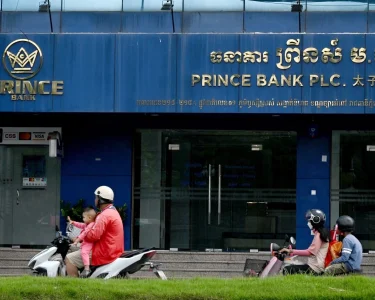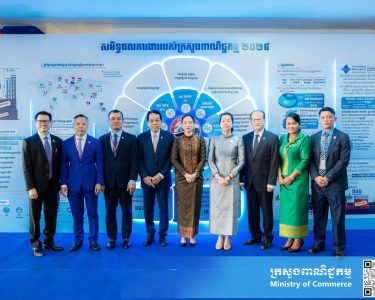Cambodia Investment Review
The way Cambodians send money internationally is rapidly evolving, with more customers turning to mobile apps for convenience, affordability, and speed. Digital banking innovations have reshaped the remittance landscape, making account-to-account transfers easier than ever before. One of the latest examples of this shift is Phillip Bank’s partnership with Visa, which introduces one of the most competitive and transparent international transfer services in Cambodia.
The Rise of Mobile-Based International Transfers
The demand for seamless digital banking solutions has grown significantly, especially as more Cambodians and expatriates rely on international money transfers to support families, make payments, or manage global transactions. Traditional remittance services often involve long queues, high fees, and unclear exchange rates, but banking apps are simplifying the process.
Read More: Phillip Bank Partners with Visa to Deliver Better, Faster, and Easier Remittances
Phillip Bank’s new partnership with Visa reflects this growing trend, allowing customers to send money to over 30 countries directly from their smartphones via the Phillip Mobile app. Unlike conventional bank transfers that require in-person visits or complex steps, the new service enables users to transfer up to $10,000 per day with a flat-fee structure—as low as $0.99 per transaction and $9.99 for transfers to the United States.
“We are delighted to work with Visa to bring a better, faster, and easier way to send money abroad,” said Chan Mach, CEO of Phillip Bank. “This partnership exemplifies Phillip Bank’s commitment to innovation in banking, while upholding values of trust and reliability that we are known for. We believe that this service will greatly benefit our ASEAN and expatriate customers, who are increasingly looking for convenient and cost-effective ways to support family and make payments internationally.”
Visa and Phillip Bank Bring Cambodia’s First Account-to-Account Mobile Transfers
While card-based international transfers have been available in Cambodia, Phillip Bank’s partnership with Visa marks the first commercial bank collaboration to enable direct account-to-account transfers via a mobile app. This means customers no longer need to rely on cash-based services or intermediaries, which often come with higher costs and slower processing times.
Users can initiate international transfers with just a few taps on their smartphones, bypassing the need for physical visits to bank branches or remittance outlets.
Ivana Tranchini, Country Manager for Visa Cambodia, emphasized how this move aligns with Visa’s vision for digital financial inclusion: “This partnership with Phillip Bank is an exciting milestone for Visa in Cambodia, as we expand into new territory with our first account-to-account transfer service with a commercial bank. We are thrilled to bring greater value to Phillip Bank’s customers by making international money transfers simpler and more accessible. This is in line with Visa’s mission to remove barriers and connect people to the global economy.”
A Future Driven by Digital Banking
With remittance flows increasing in Cambodia, banks are investing more in mobile-first solutions to meet customer demand. The move toward app-based transfers is not only about convenience but also about ensuring that users get the best possible exchange rates and transparent pricing without hidden fees.
Chan Mach reaffirmed Phillip Bank’s commitment to digital transformation: “This partnership aligns with our broader strategy to expand our digital banking capabilities, and we are confident that this service will set a new standard for international transfers in Cambodia.”
Customers can access the enhanced transfer service by downloading or updating the Phillip Mobile app, where they can take advantage of competitive rates, transparent fees, and seamless processing times. As mobile banking continues to shape financial services in Cambodia, partnerships like these highlight how technology is making international transactions easier and more cost-effective for everyday users.





